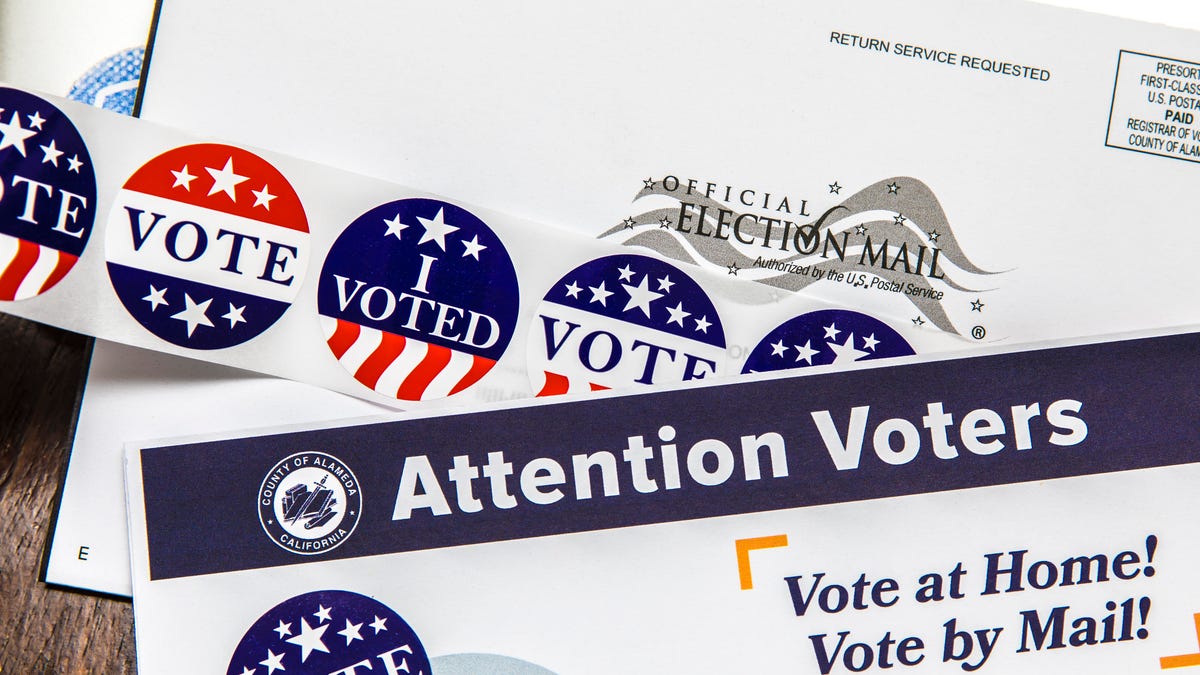The Supreme Court made a major decision on US voting laws last week. Here's what it means
The US high court backed a law that has been criticized for restricting voters at the ballot box. Here's what we know.

The Supreme Court ruled an Arizona law does not discriminate against minority voters.
Voting laws are at the center of a growing national debate over fair access to the ballot. But the battles are increasingly being fought state by state. Last week, the Supreme Court upheld an Arizona voting law that critics say restricts the rights of underrepresented groups to vote. The Arizona law prevents people from submitting a completed ballot from another voter -- with specific exceptions -- and stops voters from casting their ballot at a location other than their assigned polling place.
The Supreme Court decision on the case, Brnovich v. Democratic National Committee, rules that Arizona's tighter voting rules do not violate the Voting Rights Act of 1965 and do not discriminate against minority voters.
With at least 17 Republican-led states passing restrictive voting laws this year, the ruling sets a precedent that suggests the Supreme Court will uphold other, similar state laws if they're brought before the court. Here's what the Supreme Court ruling means, and what the opposition says.
What does the Supreme Court ruling mean for ordinary voters?
The ruling Thursday by the Supreme Court -- the last of its current term -- overturned an earlier ruling from the 9th US Circuit Court of Appeals in San Francisco that ruled the Arizona voting law disproportionately restricts voting access to Black, Latino and Native American voters.
The Supreme Court decided that Arizona's law does not violate Section 2 of the Voting Rights Act and was not enacted with a racially discriminatory purpose.
Specifically, under Arizona law, a family member, household member or caregiver can return a voter's absentee ballot. It's a felony for anyone else to gather and turn in another person's ballot, like from a neighborhood collection box. In addition, election officials are required to throw out a ballot cast by a voter who didn't vote in their designated voting place. The Supreme Court ruled that neither regulation violated a voter's rights.
While the laws vary state by state, most states also allow someone besides the voter to return an individual voter's absentee ballot, for example if a voter has a medical need for assistance.
A record number of voters cast their ballot by mail in 2020.
Why is the Arizona law controversial?
Critics of the Arizona law say it disproportionately limits minority voters' access to the polls. The vote overturns a lower court ruling that found the law discriminated against minority voters.
Commenting on the Supreme Court case, the NAACP wrote that the Arizona rules are an attempt to restrict the right of minorities to vote and chip away at the protection that Section 2 of the Voting Rights Act guarantees minority voters. "States and local jurisdictions have unleashed a torrent of new voting rules that deny or burden the ability of Black people to vote and to participate equally in the political process," the NAACP wrote, noting Section 2 is the principal tool used to block "these new discriminatory measures."
Associate Justice Elena Kagan said (PDF), in opposition to the ruling, "So the court decides this Voting Rights Act case at a perilous moment for the nation's commitment to equal citizenship. It decides this case in an era of voting-rights retrenchment -- when too many states and localities are restricting access to voting in ways that will predictably deprive members of minority groups of equal access to the ballot box."
Who was for and against upholding the Arizona voting rules?
The vote was 6-3 to uphold the Arizona voting restrictions, with conservative justices Samuel Alito, Amy Coney Barrett, Neil Gorsuch, Brett Kavanaugh, John Roberts and Clarence Thomas voting in favor of the restriction.
Liberal justices Stephen Breyer, Elena Kagan and Sonia Sotomayor voted against the decision.
Arizona is a no-excuse absentee voting state.
What does the Supreme Court ruling have to do with the Voting Rights Act of 1965?
The dispute is about whether Arizona's law violates Section 2 of the Voting Rights Act of 1965 -- which prohibits voting practices that discriminate against minority voters -- and the Fifteenth Amendment of the Constitution, which established that the right to vote can not be denied on the basis of race.
Does this have anything to do with the For the People Act of 2021?
Not directly. In response to what Democratic leaders call an effort by states to limit the right to vote, the Democratic-led House passed the For the People Act of 2021 in March. The proposed legislation would reverse the voting rights restrictions pushed by Republican-controlled state legislatures this year. The bill was blocked by Senate Republicans in June.
According to the Brennan Center for Justice, a left-leaning public-policy institute, the bill would have made it "easier to vote in federal elections, end congressional gerrymandering, overhaul federal campaign finance laws, increase safeguards against foreign interference, strengthen government ethics rules, and more."
What happens next?
In the short term, the Biden administration intends to challenge in court recent state laws that restrict voting, such as in Georgia. While the Supreme Court can and has overturned its own decisions, court watchers say today's decision suggests the Supreme Court will most likely not overturn many of the new laws that put restrictions on voting.

